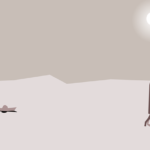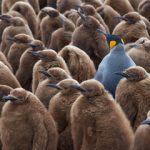Via We must ensure that fortune favours the 500 | THE News
The article linked in this blog post is behind a paywall. For those not subscribed to the Times Higher Education magazine, a brief summary can be found below.
- Success rates for bids for government funding are often below 20%.
- ‘Impact’ is a dominant factor in deciding whose work will receive funding.
- The author, Donald Braben, claims that as many as 500 of the most significant scientific discoveries of the 20th century might have been stifled if those scientists had been seeking funding today.
- There is a prevalent idea that research funding should be distributed according to a ‘bang for your buck’ approach – something that President Barack Obama emphasized in a speech in 2013.
- This approach stifles the freedom of academics to explore niche fields, which can yield some of the most groundbreaking discoveries.
- Professor Braben makes several proposals that he believes would promote innovation in science today:
- Applicants should not be restricted by age
- Targets should not be given
- Standards should be very high, but applicants should not be in direct competition (i.e. all good applicants should receive funding)
- Creativity and ‘thinking outside the box’ must be rewarded
Reactions from other academics to Professor Braben’s piece can be found here (article also behind a paywall).
Professor Braben’s article was personally endorsed by the following academics:
John Allen, University College London
Hagan Bayley FRS, University of Oxford
David Colquhoun FRS, University College London
Merlin Crossley, University of New South Wales
John Dainton FRS, Cockcroft Institute, Daresbury Laboratory, UK
Steve Davies, University of Oxford
Rod Dowler, chair, Industry Forum, UK
John Ellis FRS, University of Warwick
Irene Engle, US Naval Academy
Felipe Fernández-Armesto, University of Notre Dame
Desmond Fitzgerald, Materia Medica, Knutsford, UK
Donald Geman, US National Academy of Sciences, Johns Hopkins University
Dudley Herschbach, US National Academy of Sciences, Nobel laureate, Harvard University
Pat Heslop-Harrison, University of Leicester
Sui Huang, Institute for Systems Biology, Seattle
Herbert Huppert FRS, University of Cambridge
James Ladyman, University of Bristol
Peter Lawrence FRS, University of Cambridge
Mark Leake, University of York
Chris Leaver CBE FRS, University of Oxford
Angus Macintyre FRS, Queen Mary University of London
John Mattick FAA, director, Garvan Institute of Medical Research, Sydney
S. Moore, US National Academy of Engineering, University of Texas at Austin
Beatrice Pelloni, Heriot-Watt University
Gerald Pollack, University of Washington
Douglas Randall, former US National Science Board member, University of Missouri
Sir Richard J. Roberts FRS, Nobel laureate, New England Biolabs
Helmut Schwarz, Fellow of the European Academy of Sciences, Technical University of Berlin
Ken Seddon OBE, Queen’s University Belfast
Colin Self, Newcastle University
Timothy Spiller, University of York
Gene Stanley, US National Academy of Sciences, Boston University
Harry Swinney, US National Academy of Sciences, University of Texas at Austin
Sir John Meurig Thomas FRS, Hon FREng, University of Cambridge
William Troy, University of Pittsburgh
Robin Tucker, Lancaster University
Claudio Vita-Finzi, FBA, Natural History Museum, London






